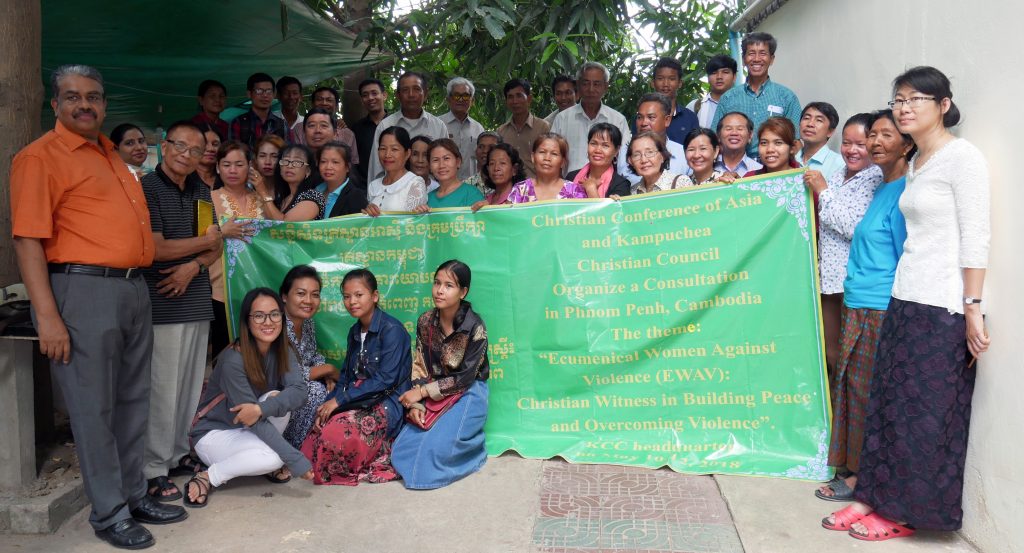Cambodian church leaders’ consultation paves the way for initiating ecumenical women’s action against violence

The national consultation of the representatives of churches from different provinces in Cambodia paved the way for initiating networks and coalitions of women in church and society at the grassroots to overcome violence and build peace with justice.
The consultation with participants from grassroots congregations in Cambodia, organised by the Christian Conference of Asia (CCA) in cooperation with the Kampuchea Christian Council (KCC) as part of Ecumenical Women’s Action Against Violence (EWAAV), was held at the KCC headquarters in Phnom Penh, Cambodia from 10 to 12 May 2018.
About 40 participants attended the consultation from various provinces in Cambodia.
“Asia has a rich tradition and heritage of communities living together in peace. Traditional models of peace building existed in many Asian communities and those were effective models of conflict transformation. However, Asian communities need more concerted efforts to overcome violence and build harmonious societies where peace with justice would prevail”, said Dr. Mathews George Chunakara, General Secretary of the Christian Conference of Asia at the opening session of the consultation.
The church leaders emphasised the significance of mobilising the synergies of women and men, both within and outside of the church, to cooperate and join hands with people of all faiths to combat violence against women.
The Biblical-Theological Reflections and the re-reading of the Bible from the perspectives of women’s concerns helped in stimulating the participants to reflect on the Scriptures from their own local contexts and developing new hermeneutical understanding.
“Cambodia has an overall literacy rate of 74%. However, women and girl-children in many parts of the country still undergo social discrimination, economic injustice, and lack of equal opportunities to partake in social and public life. Violence not only affects the physical and psychological well-being of Cambodian women but also destroys the social fabric of the community in particular and of society at large”, said Sotheavy Srey, a Cambodia peace activist who is a member of CCA’s programme Committee.
Ms. Sunila Ammar, Rev. Oum Sovy, Rev. Eang Chuun, Ms. Sotheavy Srey, Rev. Sok Nev, and Dr. Rey Ty facilitated various sessions at the national consultation.










